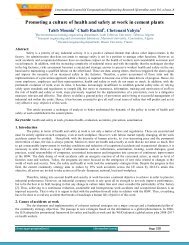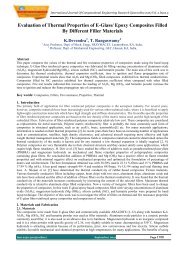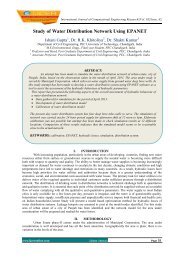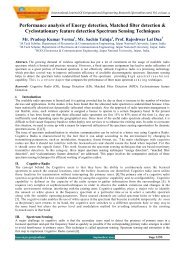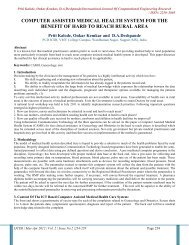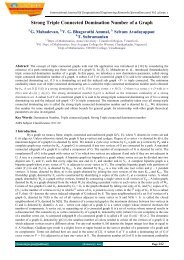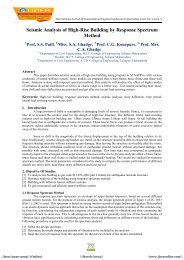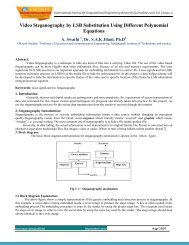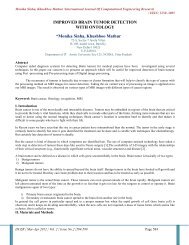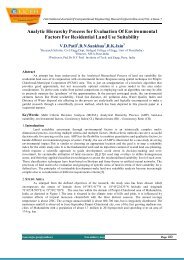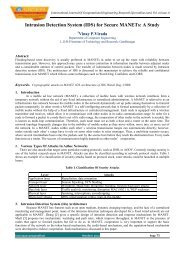- Page 1 and 2:
ISSN: 2250-3005VOLUME 2 December 20
- Page 3 and 4:
Meisam MahdaviQualification: Phd El
- Page 5 and 6:
16. Implementation Of Serial Commun
- Page 7 and 8:
45 Performance Evaluation Of Energy
- Page 9 and 10:
International Journal Of Computatio
- Page 11 and 12:
International Journal Of Computatio
- Page 13 and 14:
International Journal Of Computatio
- Page 15 and 16:
International Journal Of Computatio
- Page 17 and 18:
International Journal Of Computatio
- Page 19 and 20:
International Journal Of Computatio
- Page 21 and 22:
01 .048International Journal Of Com
- Page 23 and 24:
International Journal Of Computatio
- Page 25 and 26:
International Journal Of Computatio
- Page 27 and 28:
International Journal Of Computatio
- Page 29 and 30:
International Journal Of Computatio
- Page 31 and 32:
International Journal Of Computatio
- Page 33 and 34:
International Journal Of Computatio
- Page 35 and 36:
International Journal Of Computatio
- Page 37 and 38:
International Journal Of Computatio
- Page 39 and 40:
International Journal Of Computatio
- Page 41 and 42:
International Journal Of Computatio
- Page 43 and 44:
International Journal Of Computatio
- Page 45 and 46:
International Journal Of Computatio
- Page 48 and 49:
International Journal Of Computatio
- Page 50 and 51:
International Journal Of Computatio
- Page 52 and 53:
International Journal Of Computatio
- Page 54 and 55:
International Journal Of Computatio
- Page 56 and 57:
International Journal Of Computatio
- Page 58 and 59:
International Journal Of Computatio
- Page 60 and 61:
International Journal Of Computatio
- Page 62 and 63:
International Journal Of Computatio
- Page 64 and 65:
International Journal Of Computatio
- Page 66 and 67:
International Journal Of Computatio
- Page 68 and 69:
International Journal Of Computatio
- Page 70 and 71:
International Journal Of Computatio
- Page 72 and 73:
International Journal Of Computatio
- Page 74 and 75:
International Journal Of Computatio
- Page 76 and 77:
International Journal Of Computatio
- Page 78 and 79:
International Journal Of Computatio
- Page 80 and 81:
International Journal Of Computatio
- Page 82 and 83:
International Journal Of Computatio
- Page 84 and 85:
International Journal Of Computatio
- Page 86 and 87:
International Journal Of Computatio
- Page 88 and 89:
International Journal Of Computatio
- Page 90 and 91:
International Journal Of Computatio
- Page 92 and 93:
International Journal Of Computatio
- Page 94 and 95:
International Journal Of Computatio
- Page 96 and 97:
International Journal Of Computatio
- Page 98 and 99:
International Journal Of Computatio
- Page 100 and 101:
International Journal Of Computatio
- Page 102 and 103:
International Journal Of Computatio
- Page 104 and 105:
International Journal Of Computatio
- Page 106 and 107:
International Journal Of Computatio
- Page 108 and 109:
INTERNATIONAL JOURNAL OF COMPUTATIO
- Page 110 and 111:
INTERNATIONAL JOURNAL OF COMPUTATIO
- Page 112 and 113:
INTERNATIONAL JOURNAL OF COMPUTATIO
- Page 114 and 115:
International Journal Of Computatio
- Page 116 and 117:
International Journal Of Computatio
- Page 118 and 119:
International Journal Of Computatio
- Page 120 and 121:
International Journal Of Computatio
- Page 122 and 123:
International Journal Of Computatio
- Page 124 and 125:
International Journal Of Computatio
- Page 126 and 127:
International Journal Of Computatio
- Page 128 and 129:
International Journal Of Computatio
- Page 130 and 131:
International Journal Of Computatio
- Page 132 and 133:
International Journal Of Computatio
- Page 134 and 135:
International Journal Of Computatio
- Page 136 and 137:
International Journal Of Computatio
- Page 138 and 139:
International Journal Of Computatio
- Page 140 and 141:
International Journal Of Computatio
- Page 142 and 143:
International Journal Of Computatio
- Page 144 and 145:
International Journal Of Computatio
- Page 146 and 147:
International Journal Of Computatio
- Page 148 and 149:
International Journal Of Computatio
- Page 150 and 151:
International Journal Of Computatio
- Page 152 and 153:
International Journal Of Computatio
- Page 154 and 155:
International Journal Of Computatio
- Page 156 and 157:
International Journal Of Computatio
- Page 158 and 159:
International Journal Of Computatio
- Page 160 and 161:
International Journal Of Computatio
- Page 162 and 163:
International Journal Of Computatio
- Page 164 and 165:
International Journal Of Computatio
- Page 166 and 167:
International Journal Of Computatio
- Page 168 and 169:
International Journal Of Computatio
- Page 170 and 171:
International Journal Of Computatio
- Page 172 and 173:
International Journal Of Computatio
- Page 174 and 175:
International Journal Of Computatio
- Page 176 and 177:
International Journal Of Computatio
- Page 178 and 179:
International Journal Of Computatio
- Page 180 and 181:
International Journal Of Computatio
- Page 182 and 183:
International Journal Of Computatio
- Page 184 and 185:
International Journal Of Computatio
- Page 186 and 187:
Body Acceleration (m/Sec2)Dynamic T
- Page 188 and 189:
International Journal Of Computatio
- Page 190 and 191:
International Journal Of Computatio
- Page 192 and 193:
International Journal Of Computatio
- Page 194 and 195:
International Journal Of Computatio
- Page 196 and 197:
International Journal Of Computatio
- Page 198 and 199:
International Journal Of Computatio
- Page 200 and 201:
International Journal Of Computatio
- Page 202 and 203:
International Journal Of Computatio
- Page 204 and 205:
International Journal Of Computatio
- Page 206 and 207:
International Journal Of Computatio
- Page 208 and 209:
International Journal Of Computatio
- Page 210 and 211:
International Journal Of Computatio
- Page 212 and 213:
International Journal Of Computatio
- Page 214 and 215:
International Journal Of Computatio
- Page 216 and 217:
International Journal Of Computatio
- Page 218 and 219:
International Journal Of Computatio
- Page 220 and 221:
International Journal Of Computatio
- Page 222 and 223:
International Journal Of Computatio
- Page 224 and 225:
EigenvalueEigenvalueInternational J
- Page 226 and 227:
International Journal Of Computatio
- Page 228 and 229:
International Journal Of Computatio
- Page 230 and 231:
International Journal Of Computatio
- Page 232 and 233:
International Journal Of Computatio
- Page 234 and 235:
International Journal Of Computatio
- Page 236 and 237:
International Journal Of Computatio
- Page 238 and 239:
International Journal Of Computatio
- Page 240 and 241:
International Journal Of Computatio
- Page 242 and 243:
International Journal Of Computatio
- Page 244 and 245:
International Journal Of Computatio
- Page 246 and 247:
International Journal Of Computatio
- Page 248 and 249:
International Journal Of Computatio
- Page 250 and 251:
International Journal Of Computatio
- Page 252 and 253:
International Journal Of Computatio
- Page 254 and 255:
International Journal Of Computatio
- Page 256 and 257:
International Journal Of Computatio
- Page 258 and 259:
International Journal Of Computatio
- Page 260 and 261:
International Journal Of Computatio
- Page 262 and 263:
International Journal Of Computatio
- Page 264 and 265: International Journal Of Computatio
- Page 266 and 267: International Journal Of Computatio
- Page 268 and 269: International Journal Of Computatio
- Page 270 and 271: International Journal Of Computatio
- Page 272 and 273: International Journal Of Computatio
- Page 274 and 275: International Journal Of Computatio
- Page 276 and 277: International Journal Of Computatio
- Page 278 and 279: International Journal Of Computatio
- Page 280 and 281: International Journal Of Computatio
- Page 282 and 283: International Journal Of Computatio
- Page 284 and 285: International Journal Of Computatio
- Page 286 and 287: International Journal Of Computatio
- Page 288 and 289: International Journal Of Computatio
- Page 290 and 291: International Journal Of Computatio
- Page 292 and 293: International Journal Of Computatio
- Page 294 and 295: International Journal Of Computatio
- Page 296 and 297: International Journal Of Computatio
- Page 298 and 299: International Journal Of Computatio
- Page 300 and 301: International Journal Of Computatio
- Page 302 and 303: International Journal Of Computatio
- Page 304 and 305: International Journal Of Computatio
- Page 306 and 307: International Journal Of Computatio
- Page 308 and 309: International Journal Of Computatio
- Page 310 and 311: International Journal Of Computatio
- Page 312 and 313: International Journal Of Computatio
- Page 316 and 317: International Journal Of Computatio
- Page 318 and 319: International Journal Of Computatio
- Page 320 and 321: International Journal Of Computatio
- Page 322 and 323: International Journal Of Computatio
- Page 324 and 325: International Journal Of Computatio
- Page 326 and 327: International Journal Of Computatio
- Page 328 and 329: International Journal Of Computatio
- Page 330 and 331: International Journal Of Computatio
- Page 332 and 333: International Journal Of Computatio
- Page 334 and 335: Average JitterThroughputInternation
- Page 336 and 337: Energy Consumed in Received ModeEne
- Page 338 and 339: International Journal Of Computatio
- Page 340 and 341: International Journal Of Computatio
- Page 342 and 343: International Journal Of Computatio
- Page 344 and 345: International Journal Of Computatio



